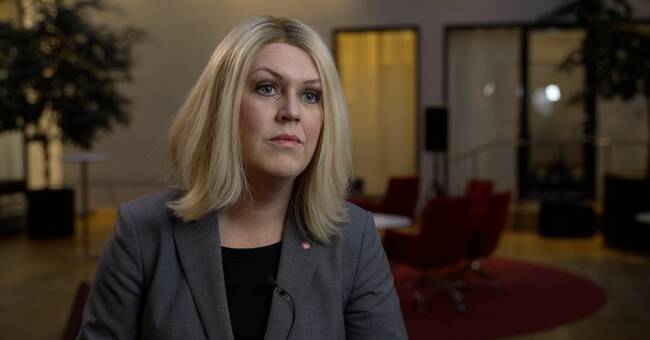SVT's review shows that 15 percent of all young people who are cared for by the social services due to domestic violence are exposed to honor.
In some cases, young people have been detained in locked Sis institutions.
Minister of Social Affairs Lena Hallengren has not lined up for an interview to comment on the review, until now.
In the wrong place
Hallengren begins by saying that honorable girls and women live in a terrible situation and are incredibly vulnerable.
- It is not in locked Sis institutions that they should mainly be, she says and continues:
- It is not Sis' task to nurture, treat and protect girls who are exposed to honor-related violence and oppression.
Hallengren has no answer as to why several girls have nevertheless ended up in locked Sis institutions.
- I can not comment on individual cases, she says.
The Minister of Social Affairs believes that the government is working to ensure that honorable people do not have to hide.
But at the same time, she believes that knowledge about honor-related violence and oppression must increase.
"Not acceptable"
SVT has met honorable girls who believe that Swedish authorities have rather overthrown than helped them.
In some cases, their hiding places have been cleared by authorities, which has led to them being found by their families.
In one case, a woman was murdered after the authorities cleared her hiding place.
- Of course it must not happen, says the Minister of Social Affairs and continues:
- This applies in all contexts where someone needs a protected identity and place.
It is not acceptable if you (the social services) disclose information or make an incorrect placement.
It should not happen.
The social services' "willingness" to help
When Lena Hallengren is asked what she should do to prevent authorities from disclosing information, she again answers that she can not comment on individual cases, but states that the purpose of the social services is to help vulnerable people.
- Their will is to help these girls.
Both in protecting them from those who should care most about them, their families, and providing help and support so that they can move on to a life in freedom.

